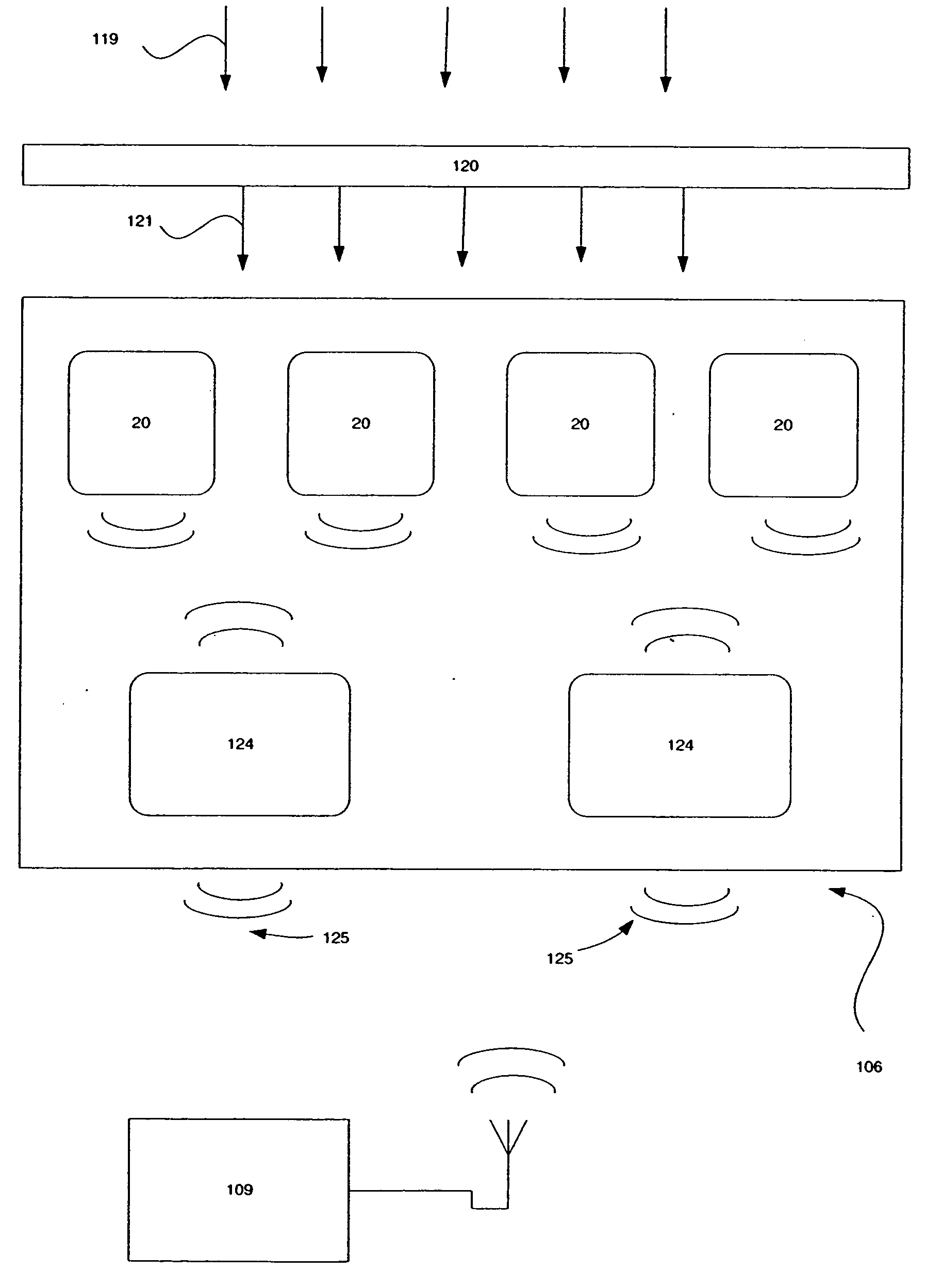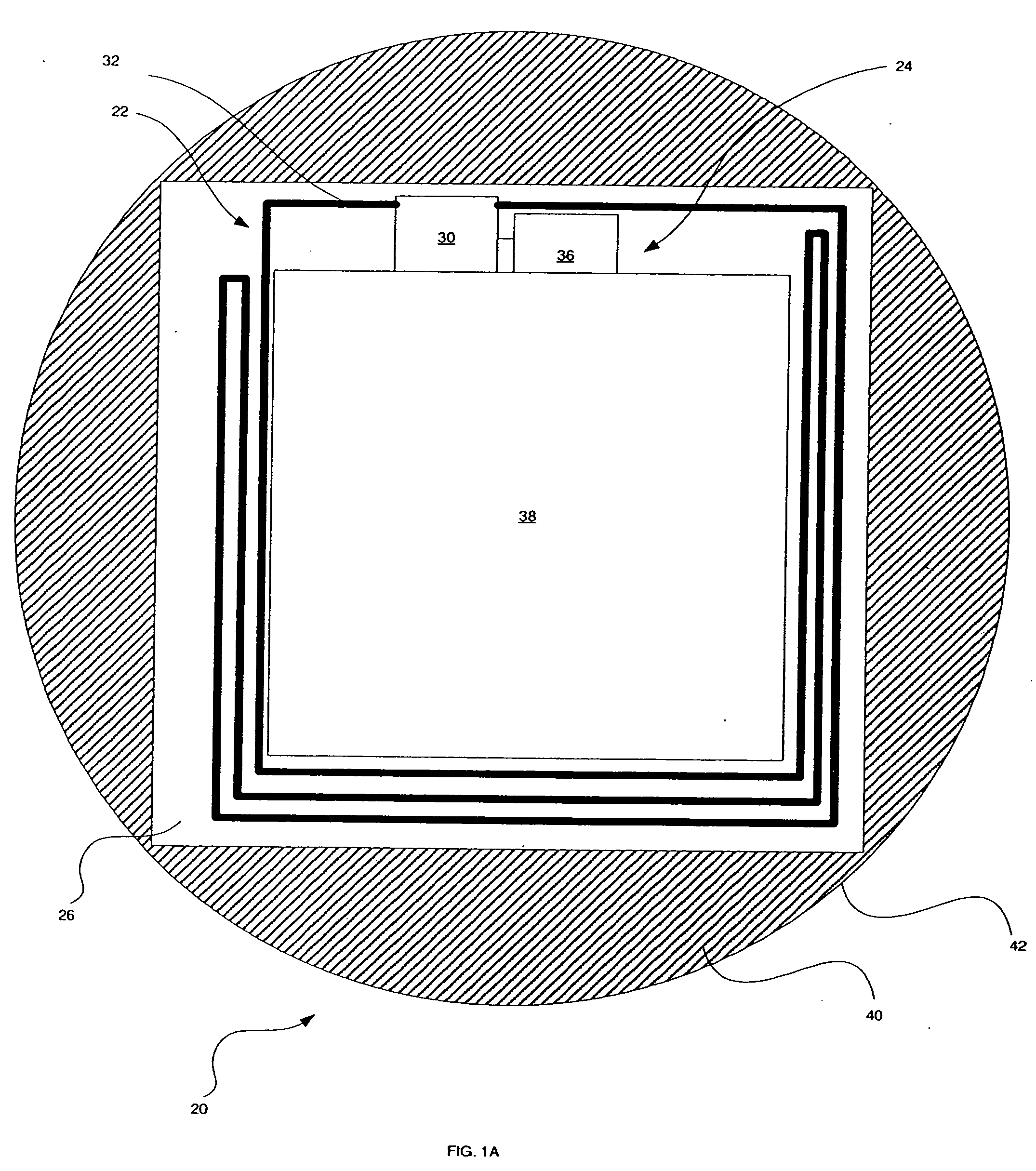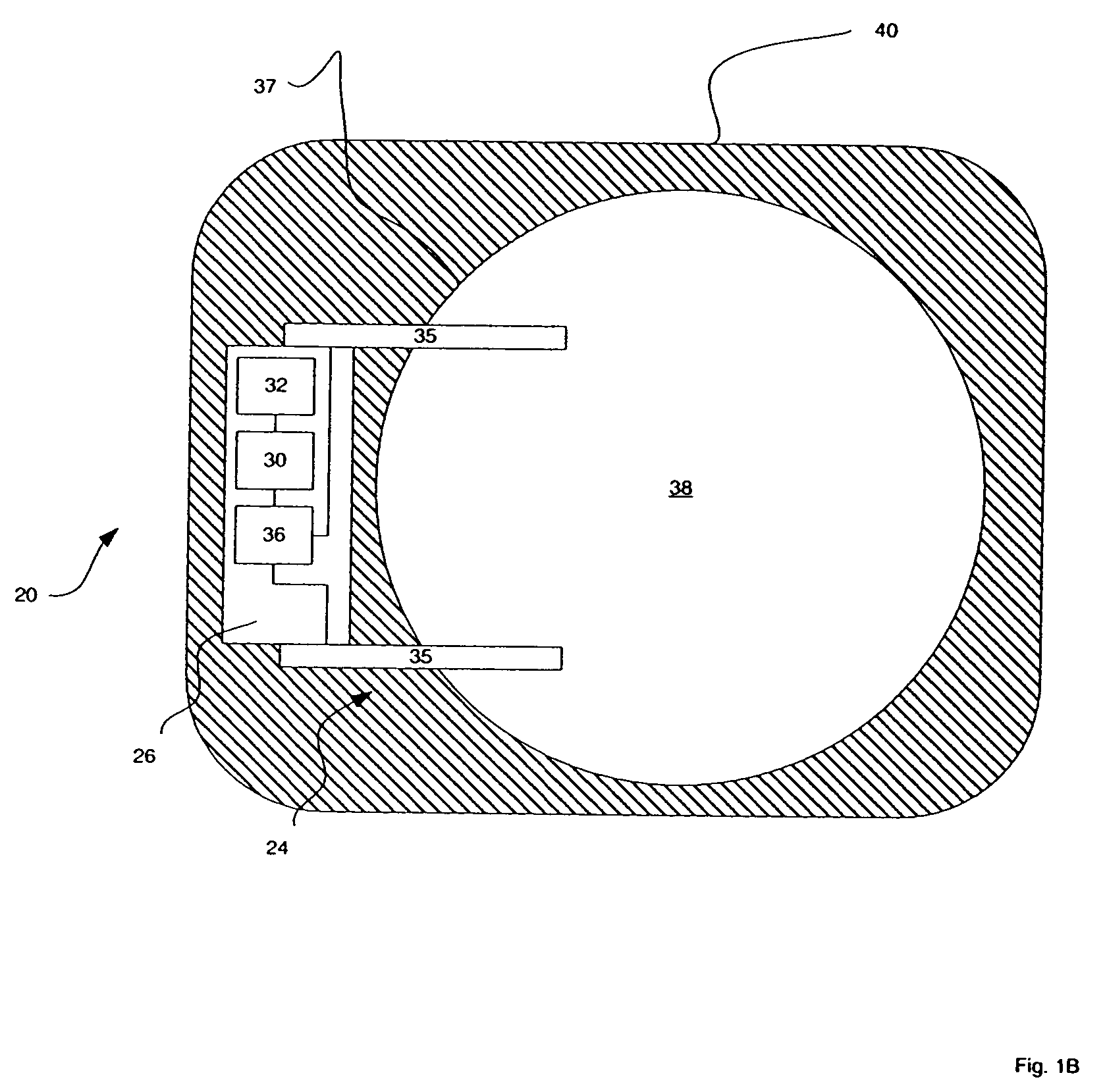Imaging element
a technology of light emitting elements and backplanes, applied in the field of imaging elements, can solve the problems of reducing the available space between light emitting elements for control lines and other circuits of backplanes, affecting the defining of backplanes on the same surface as light emitting elements, and difficult to achieve single objects in a single display
- Summary
- Abstract
- Description
- Claims
- Application Information
AI Technical Summary
Benefits of technology
Problems solved by technology
Method used
Image
Examples
Embodiment Construction
[0043] The present description is directed in particular to elements forming part of, or cooperating more directly with, apparatus in accordance with the invention. It is to be understood that elements not specifically shown or described may take various forms well known to those skilled in the art.
[0044]FIGS. 1A-1C show top cutaway views of one embodiment of an imaging element 20 of the present invention. In the embodiment of FIG. 1A, imaging element 20 comprises a wireless communication circuit 22, an illumination circuit 24 and a support 26. Wireless communication circuit 22 comprises, in this embodiment, a radio frequency receiver circuit 30 and an antenna 32. Antenna 32 is adapted to receive radio frequency signals and to provide the received signals to radio frequency receiver circuit 30. Radio frequency receiver circuit 30 is adapted to process the radio frequency signals received by antenna 32 and, in certain embodiments, to extract energy for operation from the radio frequ...
PUM
 Login to View More
Login to View More Abstract
Description
Claims
Application Information
 Login to View More
Login to View More - R&D
- Intellectual Property
- Life Sciences
- Materials
- Tech Scout
- Unparalleled Data Quality
- Higher Quality Content
- 60% Fewer Hallucinations
Browse by: Latest US Patents, China's latest patents, Technical Efficacy Thesaurus, Application Domain, Technology Topic, Popular Technical Reports.
© 2025 PatSnap. All rights reserved.Legal|Privacy policy|Modern Slavery Act Transparency Statement|Sitemap|About US| Contact US: help@patsnap.com



